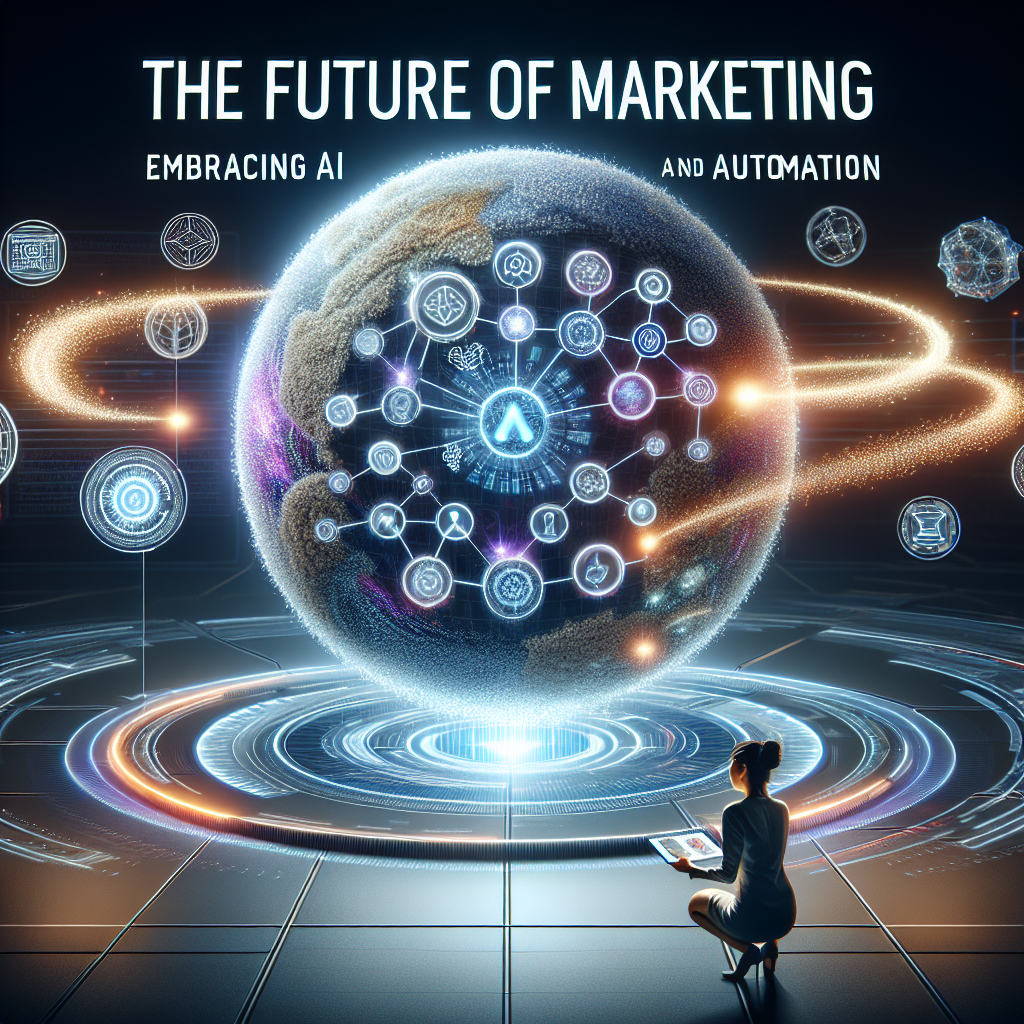The Future of Marketing: Embracing AI and Automation
As we advance further into the 21st century, the landscape of marketing is undergoing a transformative shift, largely driven by the integration of artificial intelligence (AI) and automation. This evolution not only presents unprecedented opportunities for brands to connect with their consumers more effectively but also poses new challenges that marketers must navigate. As we peer into the future, it’s evident that embracing these technologies will be crucial for businesses looking to thrive in an increasingly competitive market.
The Rise of AI in Marketing
AI technologies have rapidly permeated various aspects of marketing, from data analysis to customer service. By utilizing sophisticated algorithms, AI can analyze vast datasets to uncover insights about consumer behavior and preferences. Here are some key ways AI is shaping the future of marketing:
-
Personalization at Scale: Consumers today demand personalized experiences. AI enables marketers to segment audiences more effectively and deliver tailored content that resonates on an individual level. For example, AI algorithms can predict future buying behavior based on past interactions, allowing brands to create targeted campaigns that feel more relevant to each consumer.
-
Enhanced Customer Interactions: AI-powered chatbots are revolutionizing customer service by providing instant assistance 24/7. These chatbots can answer inquiries, guide users through the purchasing process, and even provide personalized product recommendations. The ability to maintain a seamless customer experience at all hours can significantly increase conversion rates and customer satisfaction.
-
Predictive Analytics: Understanding market trends and consumer preferences is key to successful marketing. AI tools can analyze historical data, identify patterns, and forecast future behaviors, empowering businesses to make data-driven decisions. Marketers can optimize their campaigns, allocate budgets more effectively, and anticipate market shifts with greater accuracy.
- Content Creation: AI is not just limited to data analysis; it is also making strides in content generation. Natural language processing (NLP) technologies can create engaging articles, social media posts, and email newsletters tailored to specific audience segments. While human creativity remains irreplaceable, AI can assist in generating ideas and streamlining content production, allowing marketers to focus on strategic initiatives.
The Role of Automation in Marketing
Alongside AI, automation is playing a pivotal role in transforming marketing strategies. Automation tools are designed to streamline repetitive tasks, improve efficiency, and free up valuable time for marketers. Here’s how automation is influencing the future of marketing:
-
Email Marketing Automation: Automated email marketing platforms allow businesses to send timely and relevant messages to customers without manual intervention. By segmenting audiences and automating workflows, brands can nurture leads and maintain engagement with minimal effort. This leads to improved open rates, higher conversions, and enhanced customer loyalty.
-
Social Media Management: Automation tools can schedule posts, monitor engagement, and analyze performance metrics across social media platforms. By removing the manual burden of content dissemination, marketers can focus on crafting compelling messages and building authentic relationships with their audiences.
-
Ad Campaign Optimization: Programmatic advertising utilizes automation to buy and sell online advertising space in real time. AI algorithms analyze user data and optimize the placement of ads to reach the most relevant audience segments. This precision not only maximizes ROI but also minimizes wasted expenditure.
- Streamlined Workflows: Automating project management and internal communication enhances team collaboration. Platforms that integrate task assignments, deadlines, and project tracking reduce the likelihood of errors and miscommunication. This fosters a more efficient work environment and allows marketing teams to respond more rapidly to changing market dynamics.
Preparing for the Future
As the marketing landscape becomes increasingly sophisticated, brands must prepare to embrace the future of AI and automation. Here are several strategies to navigate this transformative era:
-
Invest in Training: Equip marketing teams with the knowledge and skills to effectively leverage AI and automation tools. Continuous learning will help professionals stay ahead of trends and maximize the potential of these technologies.
-
Adopt a Test-and-Learn Approach: Encourage experimentation with new tools and platforms. A flexible, agile mindset will allow brands to adapt to emerging technologies and optimize their marketing strategies.
-
Focus on Ethical AI: As AI technologies become more pervasive, marketers must prioritize ethical considerations. Transparency and data privacy will be critical in building and maintaining consumer trust.
- Integrate Human Touch: While AI and automation can significantly enhance efficiency, the human element in marketing remains essential. Balancing technology with authentic human connections will foster loyalty and long-term relationships with customers.
Conclusion
The future of marketing is unmistakably intertwined with advancements in AI and automation. As businesses adapt to these changes, they will find new ways to engage consumers, streamline operations, and enhance decision-making processes. By embracing these technologies thoughtfully and ethically, marketers can position their brands for success in a dynamic, digital-first world. The future is bright for those who dare to innovate and evolve with the landscape.

